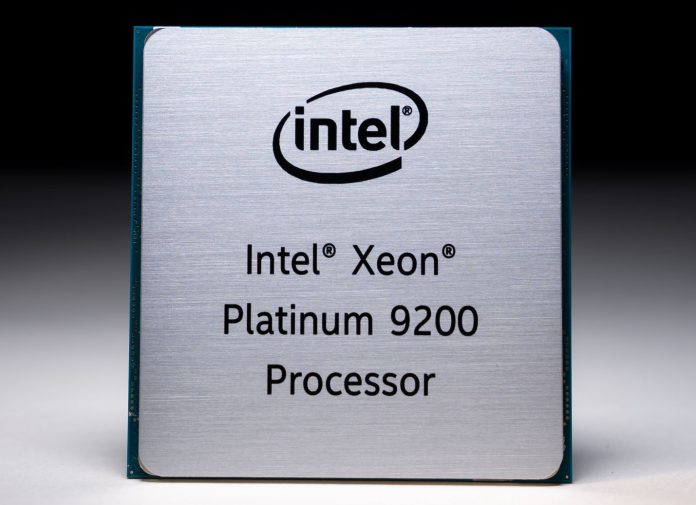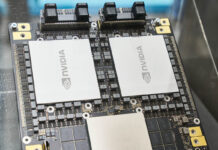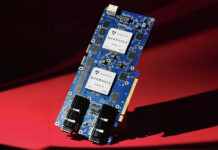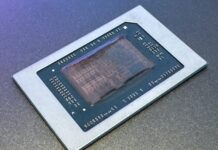In the first half of 2020, Intel plans to make 56-core “glued together” CPUs a reality for more customer segments. The Cooper Lake generation of processors destined for the 2020 release docket will include a few new features that will make them more desireable than the current Intel Xeon Platinum 9200 series on several fronts.
2020 Cooper Lake Plans
According to Intel’s release, Cooper Lake will have up to 56 cores, like the current generation Intel Xeon Platinum 9200 series. This is important because tomorrow, we expect AMD to announce their “Rome” generation with up to 64-cores in a more broadly usable platform. Intel’s mainstream socketed monolithic CPUs will be at a distinct disadvantage in the market immediately following AMD’s release.
From Intel’s release:
The future Intel Xeon Scalable processors (codenamed Cooper Lake) will deliver twice the processor core count (up to 56 cores), higher memory bandwidth, and higher AI inference and training performance compared to the standard Intel Xeon Platinum 8200 processor. The future 56-core Cooper Lake processor is expected to deliver a lower power envelope than the current Intel Xeon Platinum 9200 processors. Cooper Lake will be the first x86 processor to deliver built-in high-performance AI training acceleration capabilities through new bfloat16 support added to Intel® Deep Learning Boost® (Intel® DL Boost®). Cooper Lake will have platform compatibility with the upcoming 10nm Ice Lake processor. (Source: Intel)
There is a lot to unpack there. First, Intel is saying that Cooper Lake will be a higher memory bandwidth an AI performance with bfloat16 and DL Boost support. Second, Intel is saying that its next-generation HPC focused part will have lower power than the current generation. That is welcome since Intel is at 400W TDP with the Platinum 9282 56-core parts. Lastly, the Cooper Lake parts will be socket compatible with the 10nm Ice Lake Xeon CPUs. You may remember we saw the first 10nm low power notebook Ice Lake/ Sunny Cove parts launch last week.
Final Words
These are steps that Intel needs to take. Socketed is a better option for the ecosystem than the current L9 integration. Also, 400W TDP in a socket is still more than many installations need or want. You can read about the current Platinum 9200 in Why the Intel Xeon Platinum 9200 Series Lacks Mainstream Support. Cooper Lake should go a long way to allay many of the current generation’s concerns.
The big question on industry observers’ minds is, what happens to mainstream Xeon as AMD launches Rome. Stay tuned to STH tomorrow for that.





Does anyone knows if AMD is planning to webcast the ROME event tomorrow?
Schadenfreude is wrong, but in some cases it is also delicious!
“glued together”
Does Intel license the AMD glue? :-D